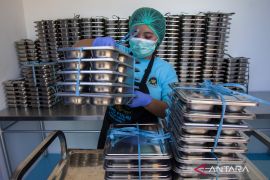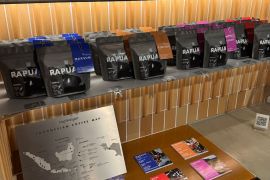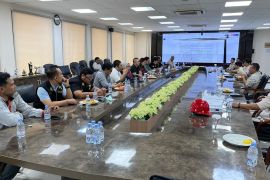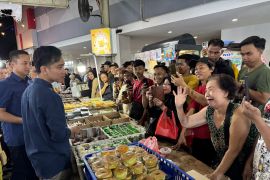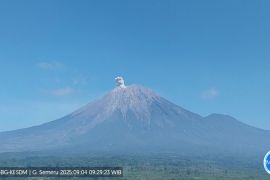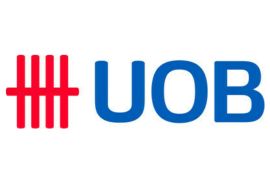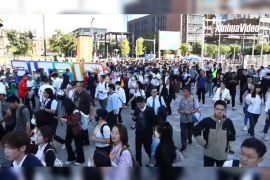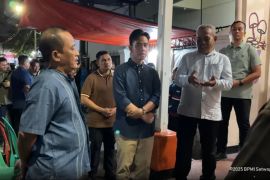Furthermore, Fadel will prohibit the entry of pearl from China which are not appropriate with Indonesian National Standard (SNI) to Indonesian territory. This is a Government effort to protect business of pearl in Indonesia.Currently, pearl production in Indonesia is controlled as 43 percent pearl production in the world, with total production as 12 tons per year and 5 tons has been exported. However, high production of pearl has not followed by improvement of pearl quality. As a result, the price of pearl from Indonesia in global market are lower than the pearl from Australia.
To realize these targets, the Ministry of Marine Affairs and Fisheries (KKP) has four supports. First, the construction of Broodstock Pearl Centre in Karang Asem, Bali. Second, form the Directorate for Development of Non-consumption Fisheries Product under the Directorate General of Fisheries Product Marketing and Processing Ministry of Marine Affairs and Fisheries. Third, form the Commission of Fisheries Product of Sub-Commission of Indonesian Pearl under the coordination of Directorate General of Fisheries Product Marketing and Processing. Fourth, to encourage the publication of Indonesian National Standard (SNI) for pearl which has been published now (SNI 4989:2011). The publication of SNI for pearl (SNI 4989:2011) should be used as a basis to arrange the Standard Operating Procedure Grading pearl and need further follow-up by making Indonesia Quality Pearl Label (IQPL).
Nowadays, pearl business is a promising business. In 2010, the value of pearl trade in the world reached US$1.5 billion and Indonesia was able to export US$30 billion. The most expensive and famous pearl is south sea pearl, where Indonesia is still listed as the largest country of pearl producer in the world. Today, pearl business has run by 27 middle-scale and big companies by employing 3000 people, including 100 pearl merchant, employ 100 people pearl jewelry workers, 300 pearl craftsmen, and involving 5000 small business of pearl seed producer. This condition indicates that the pearl business should be encouraged because it involves so many human resources.
Pearl trading currently through three types. First, the pearl from natural shells. This type of pearl from 1000 pearls do not necesarrily produce one pearl, which is natural pearl. This type of pearl becomes a rare and expensive thing. Second, pearl from cultivation of natural shells. This pearl has been developed by Mikimoto on the 19th century with very expensive price but people has already sold and easy to get. Third, pearl from cultivation of shellfish hatchery. The production of this pearl is high and producer should offer the pearl to buyer through promotion and exhibition, and only high grade quality of pearl which are able to compete in the market.
The main key of this business competition type three is the high quality of pearl shell which are ready to be operating and obtained by two ways, which are natural shells and cultivation high grade product. To obtain a superior pearl, it should be supported by good environment. Cultivation area of pearl is important because shells food is plankton in the cultivation area, this becomes the strength as well as weakness of pearl cultivation. In fish/shrimp cultivation, foods become a burden for production value approximately 60%, but foods for fish/shrimp is a continuation of foods in hatchery.
In supporting the development of pearl cultivation effort, previously KKP has made some arrangements. First, did the technology engineering of pearl shells hatchery, even this core insertion has already made by Indonesian Workers. Second, publish the Minister decision KP No. 34/MEN/2002 about the General Guidelines for Spatial Planning of Coastal Area which can be used as a basis for the arrangement of spatial planning of coastal area to support the pearl cultivation. Third, publish the Minister Regulation KP No. PER.12/MEN/2007 about the Business License for Fish Cultivation. Fourth, arrange the Map Digital Application to support the coordinate point in publishing the license of cultivation. In the National Meeting which held for two days, Mr. Robert Antonio has been elected as chairman of ASBUMI, Mr. Bambang Setiawan for Pearl Commission, and Mr. Syamsul Bahri for Honorary Board of ASBUMI.
For further information, please contact Dr. Yulistyo Mudho, M.Sc, Head of Data, Statistics and Information Center, Ministry of Marine Affairs and Fisheries (Mobile: 0811836967)
Editor: PR Wire
Copyright © ANTARA 2011
